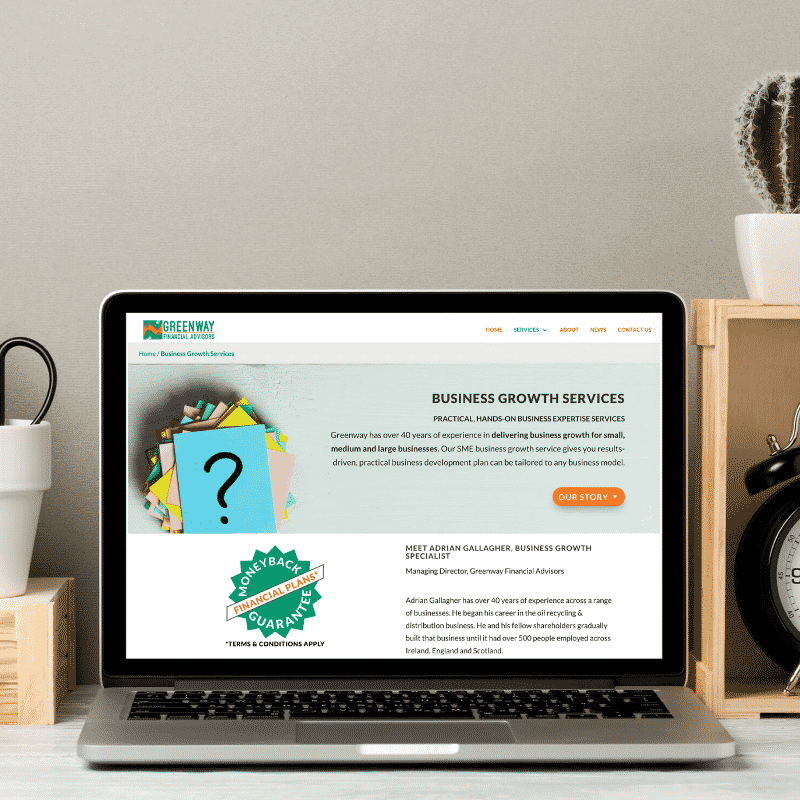Coronavirus business survival plan
Coronavirus is having a severe and traumatic impact on our economy. Our six-point plan to fight the COVID-19 economic shock will help you manage your business and react in the right way.
Even if your business has not experienced any immediate pain, go through the six-point plan to fight the COVID-19 economic shock.
Start thinking how will your business be affected over the longterm impact Ireland will suffer from a Coronavirus outbreak. If you need any business management or personal financial advice please contact us. We are happy to talk to you anytime.
6 point Coronavirus business survival plan
- Fast review of your business, to confirm it will be viable after Covid-19.
- This shock will bring permanent changes to your markets.
- Cash is King – hang onto it or find new sources of finance.
- The money is Still There – how are you going to follow it?
- Where can you get help – how can you help others?
- Prepare an action plan based on your research.
While the views expressed here are those of the author, he has drawn inspiration from the following blog: https://hbr.org/2019/05/how-to-survive-a-recession-and-thrive-afterward
Why listen to us?
Adrian Gallagher (Managing Director) has over 40 years experience across a number of industries. He has worked, survived and grown businesses through the following recessions.
- 1973 Oil Crisis
- 1973 to 1990 Troubles in Northern Ireland
- 1979 Oil Crisis
- 1980’s early years of depression in this decade
- 1983 Recession
- 1990/91 Recession in UK
- 2007/08 Financial Crisis

Business Growth Services
Greenway has over 40 years of experience in delivering business growth for small, medium and large businesses.
Our results-driven, practical business development plan can be tailored to any business model.
IS THIS YOUR BUSINESS?
- Not Making Enough Money.
- Business Is Totally Dependent On You?
- Can’t Afford To Pay Yourself What You Are Worth.
- No time to Strategise And Plan.
- Working 60+ Hours Per Week And Never Catch Up.
1. Fast Review of Your Business to Confirm its Viability after Covid 19
A. Use this link to a template to review your business. If the business is not profitable can it quickly be made profitable? If not shut the business or try to sell it and recover as much of your cash as possible.
B. Are sections of your business profitable? If so, concentrate on them and close the unprofitable sections quickly. Don’t squander resources or cash on loss-making activities.
2. This Shock will bring permanent Changes to your Markets
Identify the permanent changes to the markets you work in, as best as you can. Now is an opportunity to align your business with these changes. You will then be able to take better advantage than your competitors.
A. What changes & trends were happening in your industry anyway? The economic shock will speed up the rate of these changes. For example in the 2007/08 recession there was a big shift in advertising, switching from print media to digital. This trend was already underway, but the recession sped it up.
B. What changes will you see in the way you work? How will you interact with clients in the future? How will your sales leads and pipelines be affected? Will it change your relationship with suppliers, and in what way?
D. What technical changes are underway in your industry? Is your company ready and equipped to be able to adopt these changes?
3. Cash is King – hang onto it or find new sources of finance
A. Cut overheads and costs, quickly, intelligently and fast. It is better to try and hold onto your key staff rather than let them go, but you have to save costs. Can you place people on short time working? Can you get staff to take paid or unpaid leave?
It’s been shown in previous recessions that the companies that did best after the recession were those which did not simply let staff go. This was because when sales picked up again they had trained, loyal staff to help them grow quickly.
B. Examine all the costs of running your business. Strip back to the essential costs.
C. Remember you must be ruthless with these exercises. If you run out of money, you are out of business. You won’t be there to capitalise on the good times when they return.
D. What other sources of money do you have? If your business has a good previous track record you may be able to borrow from a bank or friends. Have you money tied up in stocks or other company assets such as vehicles? Often you can reduce stocks and put your vehicles on a lease plan to free up cash. Are your debtors up to date? If other companies or people owe you money now is the time to collect it quickly. Should you change your business model and look for part or full payment in advance of providing goods or services?
E. Can you change the way you’re business operates to cut costs and make it more profitable? This is the time to invest in new technologies or systems that cut your costs and or improve your sales.
4. The money is Still There – how are you going to follow it?
A. Remember the money has not been lost. It’s still out there somewhere. People may have stopped spending at the moment, the money will start to flow again. Your business has to go where the money is.
B. Research has shown that companies that are proactive, flexible and prepared to adapt, do well after periods of economic shock. They don’t switch immediately to shock and survival mode. Instead, they see this time as a period of high-pressure change management.
5. Where can you get help? – How can you help others?
A. Look for help. At times like this when everything is crashing down around you it’s hard to think and keep a clear head. This is the time to look for good advice, especially from those who have seen recessions before. Don’t be afraid or too proud to ask for, or pay for help. Remember correct decision-making and speed of implementation will save you time and money.
B. We all live in a connected world. Can you help someone else who is struggling? Can you spend money with someone else who badly needs the sales?
C. Know and understand the help the government is offering now. Different assistance applies to different industries. If you have questions, we’re here to help.
6. Prepare an action plan based on your research
When you have gathered the information suggested in point 1 to 5 above then it’s time to make a plan, and take action
- Emergency Plan – Survive today! Put targets and time scales on all plans.
- Next 12 Months – Get through the year.
- Put the plans into action. Be prepared to adjust and alter them as you go along.
- Decide where you want your company to be in the next five-year period. You can take advantage of the shifts that this economic shock has brought.
- Keep your courage. Have faith that this time will pass, and that there are better times ahead.

Debbie Cheevers
Qualified Financial Advisor (QFA) & Technician Member of the Irish Taxation Institute
Debbie was born in Dublin and graduated from NCAD with a degree in Visual Communication. She brings a strong customer service background to Greenway.
Debbie qualified as APA in 2017 and a fully qualified financial advisor (QFA) in 2018. She believes that product knowledge is key to helping customers make the right choices.
In 2022 Debbie gained a tax qualification as a Technician Member of the Irish Taxation Institute.
Subscribe to our newsletter for regular information and ideas



